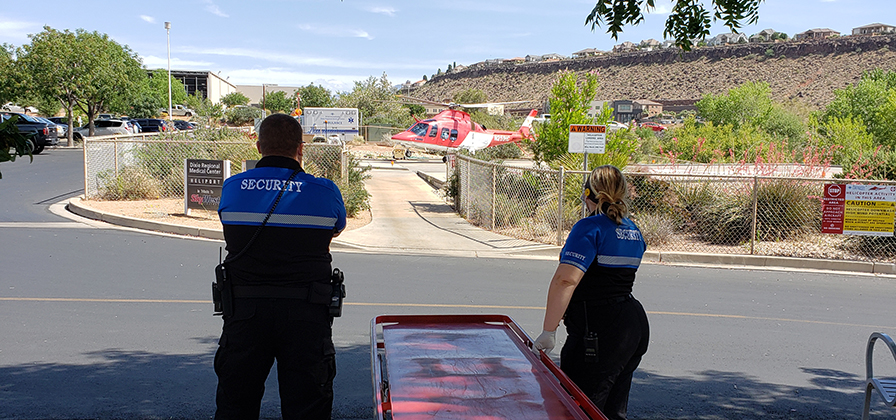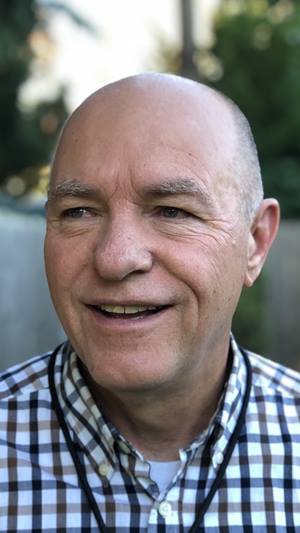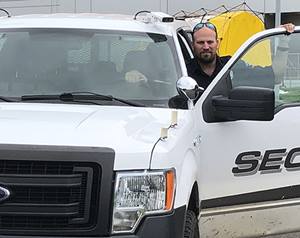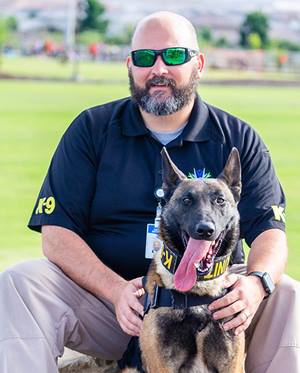

Glenn Buma, security administrative director, says officers have been flexible and supportive as they have dealt with the usual challenges they are facing today.
Staffing up to protect hospitals and clinics near the protest areas has required additional hours of coverage and has only worked because our officers have been extremely flexible in their assigned duties, according to Glenn Buma, security administrative director. He says he’s heard no complaints about the changes from Intermountain’s security officers, despite the unusual challenges.
Glenn says his team had a plan in place to deal with security issues but when things started to escalate quickly just before the May 30 protests, which included flipping and burning a police car, security made adjustments and moved quickly to get the right people in place. The May 30 clashes did send some people to the hospital to be treated but Intermountain was ready to help, he says.
Intermountain has also increased security details at clinics and the child development center in Salt Lake City, when needed. The Salt Lake Clinic, at 389 South and 900 East, was put on lockdown just before the protestors walked by the clinic on their way to the University of Utah and the nearby Child Development Center had security on site to assist parents coming to pick up their children. Intermountain’s central offices have closed early on occasion to be cautious and give any who may be there time to avoid any complications that might be caused from the unrest nearby.

Kyle McConkey helps keep things safe at McKay-Dee Hospital.
Staying prepared to respond requires Intermountain security to constantly be aware of the changing circumstances, Glenn says.
“It’s a day-to-day deal,” he says. “We stay in touch with police as to what their expectations are or what they are planning for each day and we adjust to what’s going on."
Glenn doesn’t think hospitals and clinics are or will be the targets of the mostly peaceful protests underway, but if there are clashes, people injured in such confrontations may come with emotional family, friends, and supporters who may object to hospital rules limiting visitors or encouraging social distancing. Intermountain hospitals are better prepared now for such taxing situations because they’re already locked down and visitors must go through a screening process just to get into each building, he says.

Chris Zhiem and Juno, who work at Dixie Regional Medical Center, are one of 11 canine teams that serve at Intermountain.
Officers have also closely watched the exterior of Intermountain buildings, especially LDS Hospital and Primary Children’s Hospital, to prevent any vandalism or graffiti that might come with the nighttime disruptions. No problems have surfaced so far, Glenn says.
“To be really honest, as far as the impact on our facilities goes, the protests have gone relatively smooth,” Glenn says. “But we still want to be careful because if anything spills over to our campuses we want to be prepared to respond.”
“No one comes to the hospital happy unless they’re coming to have a baby,” Glenn says. “We need to know how to deescalate tense situations and be calm. We want them to see us as a resource during these difficult times because we know it can be kind of scary.”
Craig Allen, safety management director, says Glenn and his team have done an outstanding job of coordinating, planning, and preparing to be sure patients, caregivers, and visitors are safe.
“I’m not sure everyone realizes how much is involved when working security in a hospital or clinic setting,” Craig says. “We have an exceptionally qualified, well-trained group of officers serving us. The pandemic brought unique challenges their way and these nightly protests have added some complexity to the work, but they meet each challenge with a solution and we’re safer because of the work they do.”

